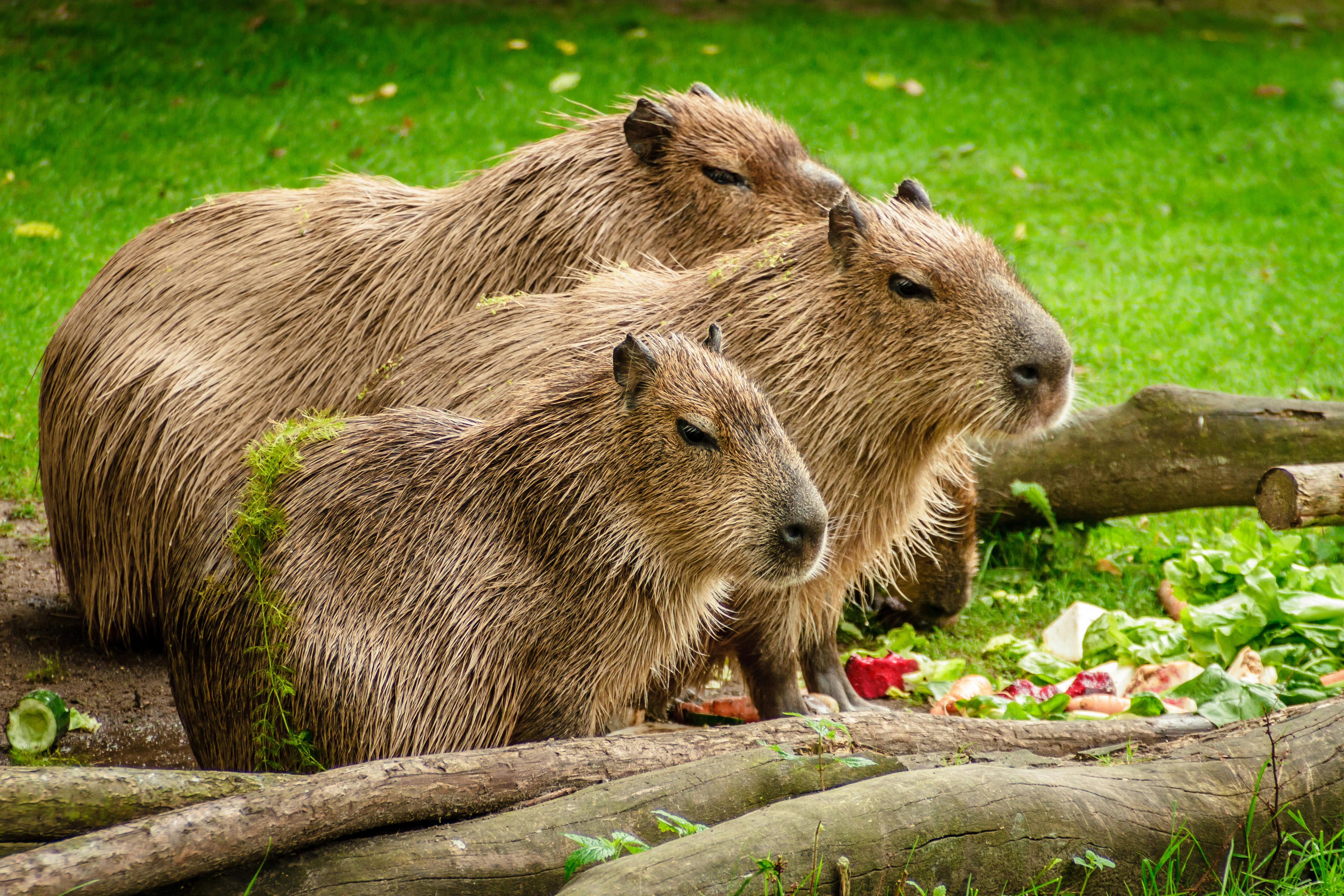Unconventional Pets: The Rise of Domestic Capybaras
In recent years, a surprising trend has emerged in the world of exotic pet ownership: the domestication of capybaras. These giant rodents, native to South America, have captured the hearts of animal enthusiasts worldwide. As more people seek unique companions, capybaras are stepping into the spotlight as unconventional yet charming pets. This article delves into the fascinating world of domestic capybaras, exploring their care requirements, legal considerations, and the growing community of capybara owners.

Capybaras have a barrel-shaped body, short head, and stubby legs. They typically weigh between 77 to 146 pounds and can grow up to 4.4 feet in length. Their coarse, reddish-brown fur is water-resistant, adapting them to their semi-aquatic lifestyle. With their gentle eyes and perpetual “smiling” expression, it’s no wonder these creatures have captured the hearts of animal lovers worldwide.
The Legal Landscape of Capybara Ownership
Before considering a capybara as a pet, it’s crucial to understand the legal implications. The legality of owning a capybara varies significantly depending on location. In the United States, for example, capybara ownership is legal in some states but prohibited in others. Countries like Japan and parts of Europe have more lenient laws regarding exotic pet ownership, including capybaras.
Prospective owners must research local and national regulations thoroughly. In areas where capybara ownership is legal, permits or special licenses may be required. These regulations are in place to ensure the welfare of the animals and to prevent potential ecological issues if they were to escape into non-native environments.
Creating a Capybara-Friendly Home
Capybaras have specific habitat requirements that potential owners must be prepared to meet. These semi-aquatic rodents need access to both land and water. A large, secure outdoor enclosure with a pool or pond is essential. The enclosure should be at least 600 square feet per capybara, with sturdy fencing at least 5 feet high to prevent escapes.
Inside the enclosure, owners should provide various environmental enrichments. This includes logs for climbing, soft bedding areas, and toys for mental stimulation. Capybaras also require shelter from extreme weather conditions, so a sturdy, insulated housing structure is necessary.
The pool or pond should be large enough for the capybara to swim and submerge fully. Water quality must be maintained through regular cleaning and filtration. Some owners opt for natural filtration systems to create a more eco-friendly habitat.
Nutrition and Health Care for Pet Capybaras
Proper nutrition is crucial for the health and well-being of pet capybaras. In the wild, these herbivores primarily feed on grasses, aquatic plants, and fruits. A domestic capybara’s diet should mirror this natural diet as closely as possible.
The primary component of a pet capybara’s diet should be high-quality grass hay, such as Timothy or Orchard grass. This should be available at all times to promote digestive health and natural foraging behaviors. Fresh vegetables, particularly leafy greens, should be offered daily. Fruits can be given as occasional treats but should be limited due to their high sugar content.
Commercial guinea pig pellets can supplement the diet, providing additional nutrients. However, these should not make up the majority of the diet. It’s essential to avoid foods high in sugar or fat, as capybaras are prone to obesity in captivity.
Regular veterinary care is crucial for pet capybaras. However, finding a veterinarian experienced in treating exotic pets, particularly capybaras, can be challenging. Owners should locate a qualified exotic pet veterinarian before bringing a capybara home. Regular check-ups, vaccinations, and parasite prevention are essential aspects of capybara health care.
The Social Nature of Capybaras: Companionship and Interaction
One of the most appealing aspects of capybaras as pets is their social nature. In the wild, these animals live in large groups, and this social behavior translates well to domestic settings. Capybaras often form strong bonds with their human caregivers and can be affectionate and interactive pets.
However, their social needs mean that capybaras should not be kept alone. Many experts recommend keeping at least two capybaras together to fulfill their social requirements. This companionship is crucial for their mental well-being and can help prevent behavioral issues that may arise from loneliness or boredom.
Capybaras can also coexist peacefully with other animals, particularly dogs and cats, if introduced properly and at a young age. Their gentle nature often makes them compatible with other pets, though supervision is always necessary to ensure safety.
The Growing Community of Capybara Enthusiasts
As the popularity of capybaras as pets grows, so does the community of capybara enthusiasts. Online forums, social media groups, and even local meetups have emerged, allowing owners to share experiences, advice, and support. These communities play a crucial role in educating potential owners and promoting responsible capybara ownership.
Many capybara owners document their pets’ lives on social media, contributing to the animals’ rising popularity. These accounts often showcase the unique personalities of capybaras, their interactions with other pets, and the joys and challenges of keeping these unconventional companions.
The capybara community also plays a vital role in conservation efforts. Many owners use their platforms to raise awareness about capybara conservation in the wild, highlighting the importance of protecting these animals’ natural habitats.
In conclusion, the domestication of capybaras represents a fascinating development in the world of exotic pet ownership. While these gentle giants can make wonderful companions for the right owners, prospective caretakers must carefully consider the legal, financial, and practical implications of capybara ownership. With proper care, a suitable environment, and a commitment to their social needs, capybaras can thrive as domestic pets, offering their owners a unique and rewarding experience. As interest in these charming creatures continues to grow, it’s crucial that education and responsible ownership practices keep pace, ensuring the well-being of capybaras both in captivity and in their natural habitats.




